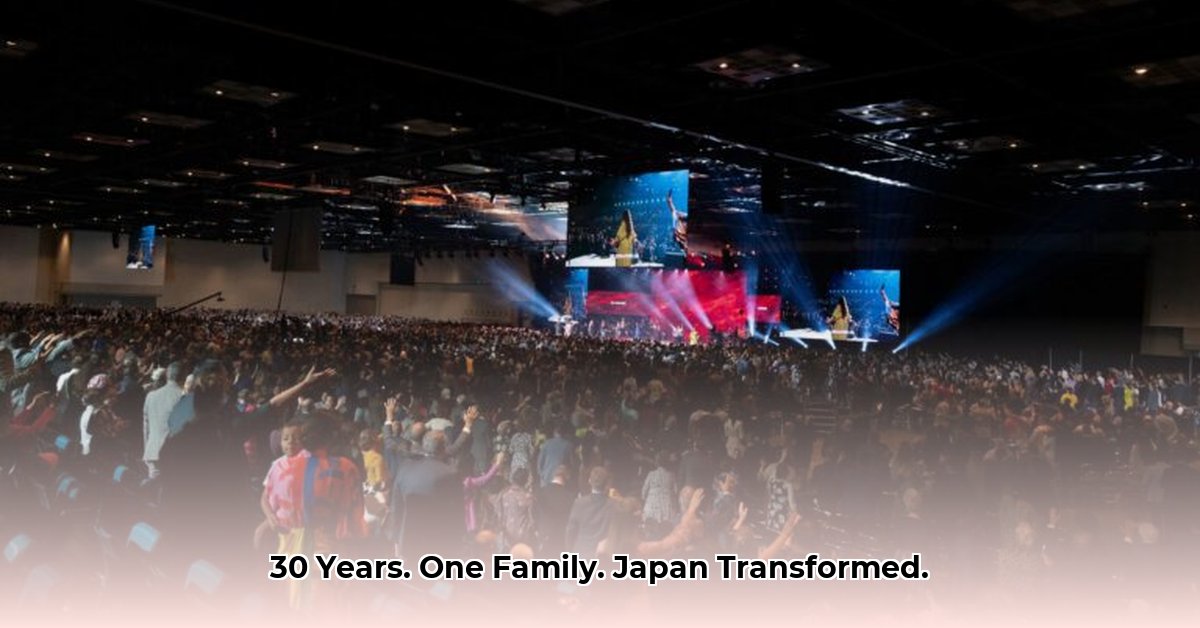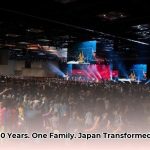Imagine the Lucas family embarking on a mission to Japan, dedicating three decades to sharing their Pentecostal Christian faith. Their story transcends religious narrative, embodying strategic vision, resilience, and community development in a non-Christian context. This is the chronicle of their faith in action, their adaptation to a new culture, and their enduring work in propagating the church’s message in Japan. For another inspiring missionary story, see Verna Garver’s Japan mission.
UPCI Missions in Japan: A Study in Church Growth and Cultural Adaptation
The Lucas family’s 30-year commitment to UPCI in Japan offers a compelling case study in church growth, illustrating both the potential for spiritual expansion and the challenges posed by deeply entrenched cultural norms. Their journey underscores the power of unwavering commitment and strategic insight. Over three decades, they built a vibrant community, significantly enhancing the UPCI’s presence in a nation where Christianity isn’t prevalent. Let’s explore the history, legacy, and strategies that underpinned their success.
Planting Seeds of Faith: Holistic Ministry and Discipleship Programs
The Lucas family’s approach extended beyond traditional preaching. They actively built a community by prioritizing relationships and nurturing new believers through comprehensive discipleship programs. These programs focused on mentoring individuals in their faith and fostering active community participation, emphasizing long-term commitment over immediate gains. By 2006, this holistic strategy had demonstrably increased UPCI membership, showcasing its effectiveness.
- Built strong relationships to nurture new believers.
- Invested in discipleship programs to encourage community involvement.
- Achieved a noticeable increase in UPCI members by 2006.
Growing Leaders: Nurturing Indigenous Leadership and Ministerial Development
A key strategic decision was the Lucas family’s emphasis on developing Japanese leaders within the church. Understanding the importance of a self-sustaining community, they trained and mentored local leaders to secure the UPCI’s future in Japan. By 2006, they had trained twelve licensed ministers, demonstrating their commitment to building a church that would endure. Empowering local voices proved crucial for the church’s long-term sustainability. How can empowering local voices sustain the church’s mission over the long term?
Bridging the Language Gap: Translation Initiatives and Cultural Understanding
Recognizing language as a potential barrier, the Lucas family diligently translated religious materials into Japanese. This crucial step demonstrated respect for Japanese culture, enabling the Gospel message to deeply resonate with the local population. Their efforts went beyond translation, aiming for culturally relevant communication that fostered a sense of belonging among Japanese congregants. What role does culturally sensitive communication play in spreading religious beliefs?
The Challenges: Navigating Cultural and Religious Differences
Despite their achievements, the Lucas family faced persistent challenges inherent in expanding their ministry in a non-Christian nation. Their story highlights not just overcoming obstacles, but also adapting and evolving. Continuing expansion required ongoing adjustments and a long-term vision, especially as conversion sometimes led to social isolation for individuals in Japan.
- Conversion in Japan can lead to social isolation.
- Long-term commitment and creative strategies are essential.
- Addressing practical needs alongside spiritual growth is crucial.
Looking Ahead: Strategic Planning and Vision
The future of UPCI missions in Japan relies on consistent financial support from both international and local sources. A well-defined leadership transition plan is also necessary to ensure continuity. Overcoming cultural barriers remains an ongoing process, demanding patience, understanding, and adaptable communication strategies.
Building a Supportive Ecosystem: Diverse Roles in Fostering Growth
The UPCI’s ongoing success in Japan requires coordinated efforts across different levels, each with unique contributions.
The Lucas family played a pivotal role, characterized by:
- Mentorship: Guiding younger leaders and instilling core values.
- Advocacy: Championing the needs of the Japanese UPCI community within the broader UPCI framework.
- Vision Casting: Inspiring future generations of missionaries and leaders.
Japanese leaders, vital in bridging the cultural gap, contribute by:
- Contextualization: Adapting UPCI teachings to the Japanese context.
- Community Engagement: Building relationships and addressing local needs through outreach programs.
- Cultural Interpretation: Helping foreign missionaries understand Japanese customs and sensitivities.
New missionaries bring fresh perspectives and energy with responsibilities in:
- Learning: Immersing themselves in the Japanese language and culture.
- Support: Assisting established leaders and contributing to ongoing projects.
- Innovation: Exploring new methods for outreach and engagement.
A Roadmap for Success: Actionable Steps for Stakeholders
To ensure continued progress, a clear strategic plan is essential. The following table outlines both short-term and long-term objectives for various stakeholders:
| Stakeholder | Short-Term Goals (0-1 Year) | Long-Term Goals (3-5 Years) |
|---|---|---|
| UPCI Global Missions | Continued financial and logistical support; evaluate program effectiveness through measurable metrics. | Secure diverse, sustainable funding streams; refine strategies based on data-driven insights; foster cross-cultural collaboration. |
| Lucas Family/Japanese Leadership | Strengthen mentoring programs; focus on transparent leadership transitions that empower local leaders. | Develop next-generation leadership training focused on innovation; cultivate stronger alliances with community organizations. |
| Japanese UPCI Churches | Implement targeted community outreach programs; increase local engagement and volunteer participation. | Achieve financial independence; empower local church initiatives that address specific community needs; expand social impact. |
| Potential New Missionaries | Ensure comprehensive language and cultural immersion training before deployment. | Expand training programs; create robust support networks for missionaries that include mentorship and peer support. |
Navigating the Risks: Preparing for Challenges and Mitigation Strategies
Proactive planning and anticipating potential challenges are vital. This table outlines key risks and corresponding mitigation strategies:
| Risk Category | Likelihood | Impact | Mitigation Strategy |
|---|---|---|---|
| Financial Sustainability | Medium | High | Diversify funding sources (grants, local fundraising, international partnerships); develop detailed budget and financial management plan. |
| Leadership Succession | Low | Medium | Implement robust mentoring and leadership development programs; establish clear succession plan with identified successors. |
| Cultural Barriers | High | Medium | Provide intensive cross-cultural training; develop culturally sensitive materials; foster relationships with local leaders and cultural experts. |
| Political Issues | Low | High | Monitor political developments (laws affecting religious organizations); maintain open communication with local authorities and legal counsel. |
| Social Acceptance | Medium | Medium | Partner with local organizations on community projects; promote interfaith dialogue; actively address misconceptions about UPCI through education. |
The Lucas family’s impact on UPCI missions in Japan is undeniable. Their story, a testament to faith, diligence, and cultural understanding, highlights both achievements and challenges, offering valuable lessons for future missionary endeavors. Their work inspires reflection on the long-term strategies and cultural sensitivities crucial for effective and sustainable missionary efforts.
Sustaining UPCI Growth in Japan: Overcoming Cultural Barriers
The Lucas family’s three-decade commitment to UPCI in Japan provides a compelling historical context and case study. Their journey illuminates both the potential for spiritual growth and the significant hurdles presented by deeply entrenched cultural norms. How to sustain UPCI growth in Japan despite cultural barriers is a critical question that requires careful examination of their experiences and the ongoing challenges of evangelism.
Navigating Cultural Nuances in Japanese Society and Religious Beliefs
Japan’s unique societal structure, shaped by tradition and a strong emphasis on group harmony, presents both opportunities and challenges. A cultural aversion to overt emotional displays, combined with a hierarchical social structure, can impact evangelism. The Lucas family’s grassroots approach involved building genuine relationships, demonstrating empathy, and patiently earning trust. This prioritized personal connection over mass outreach, proving highly effective. It underscores the importance of understanding and respecting cultural sensitivities.
Building Bridges, Not Walls: Integrating Faith and Culture
The Lucas family went beyond simply transplanting UPCI practices; they adapted their methods, blending faith with cultural understanding. They actively sought common ground, focusing on shared values such as community, family, and personal growth. This involved incorporating elements of Japanese culture into their ministry, fostering inclusivity and reducing resistance. Furthermore, they cultivated relationships with local leaders, demonstrating respect for their authority and seeking their guidance.
Adapting Strategies for Sustainability and Self-Sufficiency
Sustaining growth requires more than initial success. The Lucas family’s long-term strategy involved training local leaders, empowering them to carry the mission forward, and fostering self-sufficiency within the Japanese UPCI community. This deliberate shift to indigenous leadership ensures cultural relevance and long-term sustainability. They also emphasized community outreach, addressing local needs and demonstrating Christ-like compassion.
Addressing Systemic Challenges: Language, Bureaucracy, and Financial Independence
Beyond cultural differences, systemic challenges like language barriers and bureaucratic processes posed significant obstacles. The Lucas family responded proactively, diligently acquiring language skills, skillfully navigating legal regulations, and forging strategic partnerships with supportive organizations. These pragmatic steps demonstrated resourcefulness and perseverance. They highlight the need for strategic planning and adaptability to overcome such challenges. Fostering financial independence is crucial to prevent over-reliance on external support.
Lessons Learned: A Path Forward for Future Missionaries
The Lucas family’s experience offers invaluable insights into how to sustain UPCI growth in Japan despite cultural barriers. Their journey, filled
- Uncover Verna Garver family background: A revealing biography - July 20, 2025
- Uncover the Verna Garver Timeline: A Life Beyond Hollywood - July 20, 2025
- Uncover Verna Garver’s Untold Story: A Life Beyond Headlines - July 20, 2025















